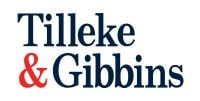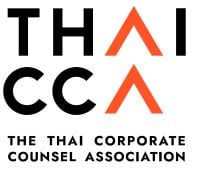

Head of legal and compliance | Bitazza







Santipap Charasphaew
Head of legal and compliance | Bitazza
Team size: Nine
What are the most significant cases or transactions that you have recently been involved in?
Over the past year, my team and I have been deeply involved in several key initiatives aimed at enhancing our compliance with Thai SEC regulations, particularly around anti-money laundering (AML) practices and the enhancement of our cybersecurity measures to protect client data and assets. One of the most significant cases was our comprehensive review and update of all compliance protocols to align with the new regulatory guidelines issued by the Thai SEC from time to time.
We also facilitated a major transaction involving the integration of blockchain technology to improve transactional transparency . This not only required rigorous compliance checks but also innovative legal solutions to address the unique challenges posed by blockchain technology in a heavily regulated financial environment.
How do you see the general counsel role evolving in Thailand over the next five to ten years?
Over the next five to ten years, the role of General Counsel (GC) in Thailand is poised to evolve significantly, driven by factors such as increasing regulatory complexity, the need to embrace technological innovation for legal operations, enhanced focus on risk management and governance, navigating cross-border transactions and disputes, and addressing environmental, social, and governance (ESG) considerations. GCs will transition from reactive to proactive and strategic advisors, requiring a multidisciplinary skill set encompassing legal expertise, business acumen, and technological proficiency, while also serving as trusted advisors to senior management, guiding on legal and regulatory matters impacting the long-term success and sustainability of their organizations.
Are the effects of AI on the legal world overplayed, or underplayed?
The effects of AI on the legal world are, in my opinion, somewhat underplayed. AI has the potential to revolutionize many aspects of legal practice, from document analysis and risk assessment to predictive legal analytics. In the context of regulatory compliance, AI tools have enhanced our ability to monitor transactions in real-time and identify patterns that may indicate potential compliance issues. However, while AI can provide valuable tools for enhancing efficiency and accuracy, the need for skilled legal interpretation and strategic decision-making remains critical. AI should be viewed as a complementary tool that can help legal professionals perform their roles more effectively, rather than as a replacement for human expertise.
Head of legal and compliance | Bitazza
Head of legal and compliance | Bitazza